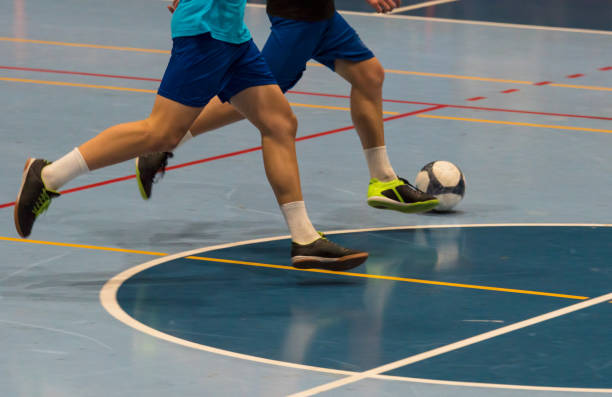Futsal: The High-Octane Version of Football that's Taking the World by Storm
In the fast-paced world of sports, a game that combines the best elements of football and indoor athleticism is quickly rising to prominence. This game is Futsal. With its focus on agility, precision, and quick thinking, Futsal is more than just a variant of football—it is an evolution in its own right.

A Brief History of Futsal
Futsal’s roots go back to the 1930s in Montevideo, Uruguay, when Juan Carlos Ceriani, a teacher, created a version of football suitable for playing in YMCAs. The game quickly gained popularity in South America, particularly in Brazil, where the lack of open spaces in urban areas made the compact, indoor game of Futsal an attractive alternative to traditional football.
Over the years, Futsal has grown and evolved, becoming a sport that is now recognized and supported by FIFA, with its own world championship that attracts teams from all over the globe.
Futsal Today: A Global Phenomenon
Futsal is rapidly expanding beyond its South American roots, with national leagues operating in countries as diverse as Iran, Russia, and Spain. The sport’s fast-paced nature, emphasis on ball control, and high scoring games make it appealing to both players and spectators alike.
Futsal is also recognized as a valuable training ground for aspiring footballers. Many football greats, including Lionel Messi and Cristiano Ronaldo, credit Futsal for honing their skills, particularly in terms of ball control and quick decision-making.
The Art and Science of Futsal
Futsal is not just about speed—it’s also about precision and strategy. The smaller playing field and fewer players than traditional soccer mean that every move counts. Successful Futsal players must master a range of skills, from precise ball control and quick directional changes to strategic positioning and synchronised team play.
Interestingly, Futsal’s demand for speed, agility, and precision aligns with cutting-edge sports science research regarding high-intensity interval training, making it a valuable training method for athletes in various fields.
The Future of Futsal
As Futsal continues to gather momentum worldwide, its impact on the world of sports is likely to increase. The sport’s inclusion in the 2018 Youth Olympic Games in Buenos Aires signifies its growing recognition on the international sports stage.
Furthermore, as urbanization continues and space becomes even more of a premium, Futsal’s compact, high-intensity format may well become even more appealing.
Conclusion
Futsal is more than just a variant of football—it’s a sport that combines athleticism, strategy, and a high level of technical skill. Its growing popularity worldwide is a testament to its appeal and the unique sporting experience it offers. As the world of sports continues to evolve, Futsal stands poised to make a significant impact, offering a fresh, exciting dimension to the world of football and indoor sports.
Note: The image provided for this article shows tennis rackets and a tennis ball, which is completely unrelated to the article content about Futsal. For accurate representation, an image related to Futsal should be used.




